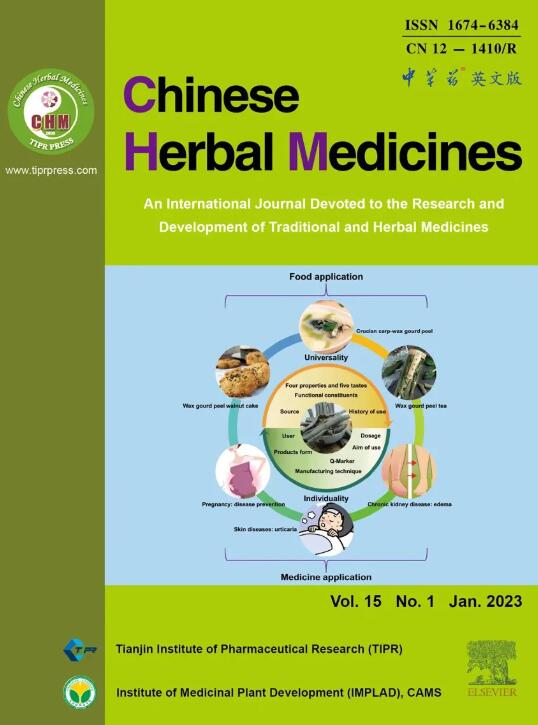Natural polyphenols as novel interventions for aging and age-related diseases: Exploring efficacy, mechanisms of action and implications for future research
IF 4.7
4区 医学
Q1 CHEMISTRY, MEDICINAL
引用次数: 0
Abstract
Natural polyphenols are a group of components widely found in traditional Chinese medicines and have been demonstrated to delay or prevent the development of aging and age-related diseases in recent years. As far as we know, the studies of natural polyphenols in aging and aging-related diseases have never been extensively reviewed. In the present paper, we reviewed recent advances of natural polyphenols in aging and common age-related diseases and the current technological methods to improve the bioavailability of natural polyphenols. The results showed that natural polyphenols have the potential to prevent or treat aging and common age-related diseases through multiple mechanisms. Nanotechnology, structural modifications, and matrix processing could provide strong technical support for the development of natural polyphenols to prevent or treat aging and age-related diseases. In conclusion, natural polyphenols have important potential in the prevention and treatment of aging and age-related diseases.
天然多酚作为衰老和年龄相关疾病的新干预措施:探索功效、作用机制和对未来研究的影响
天然多酚是一组在传统中药中广泛存在的成分,近年来已被证明可以延缓或预防衰老和与年龄有关的疾病的发展。据我们所知,天然多酚在衰老和衰老相关疾病中的研究从未得到广泛的回顾。本文综述了近年来天然多酚在衰老和常见老年病中的研究进展,以及目前提高天然多酚生物利用度的技术方法。结果表明,天然多酚具有通过多种机制预防或治疗衰老和常见衰老相关疾病的潜力。纳米技术、结构修饰和基质处理可以为开发预防或治疗衰老和年龄相关疾病的天然多酚提供强有力的技术支持。综上所述,天然多酚在预防和治疗衰老及与年龄有关的疾病方面具有重要的潜力。
本文章由计算机程序翻译,如有差异,请以英文原文为准。
求助全文
约1分钟内获得全文
求助全文
来源期刊

Chinese Herbal Medicines
CHEMISTRY, MEDICINAL-
CiteScore
4.40
自引率
5.30%
发文量
629
审稿时长
10 weeks
期刊介绍:
Chinese Herbal Medicines is intended to disseminate the latest developments and research progress in traditional and herbal medical sciences to researchers, practitioners, academics and administrators worldwide in the field of traditional and herbal medicines. The journal's international coverage ensures that research and progress from all regions of the world are widely included.
CHM is a core journal of Chinese science and technology. The journal entered into the ESCI database in 2017, and then was included in PMC, Scopus and other important international search systems. In 2019, CHM was successfully selected for the “China Science and Technology Journal Excellence Action Plan” project, which has markedly improved its international influence and industry popularity. CHM obtained the first impact factor of 3.8 in Journal Citation Reports (JCR) in 2023.
 求助内容:
求助内容: 应助结果提醒方式:
应助结果提醒方式:


